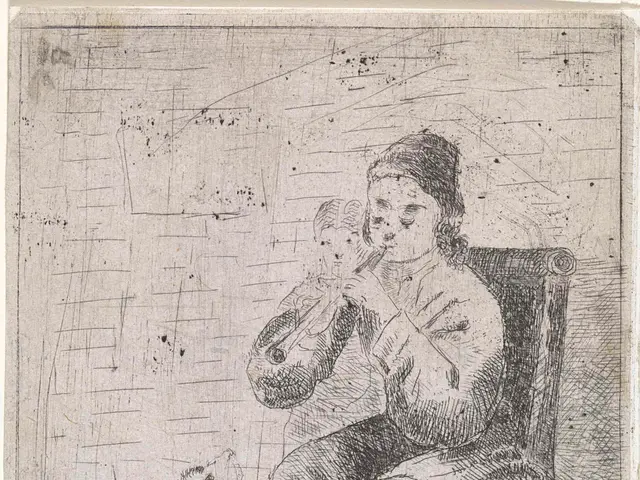The Persistent Influence and Everlasting Significance of A Streetcar Named Desire
A Streetcar Named Desire: An Enduring Classic
Grab a front-row seat to this timeless emotional rollercoaster. Originally screened in 1951, this captivating drama still packs a punch 74 years later. With its thought-provoking storyline and powerhouse performances, it's no wonder audiences can't get enough of it.
Tennessee Williams, the brilliant playwright behind the masterpiece, drew from his personal life for inspiration. His own mental health struggles, family dramas, and complicated relationships are echoed throughout the themes of fragility, desire, and the cold, hard truths of life. The character Blanche DuBois, the story's vulnerable yet fierce protagonist, shares similarities with Williams' sister, Rose, who suffered from mental illness. The tragic and poignant DuBois mirrors not only Rose's struggles but also Tennessee Williams himself.
To bring this mesmerizing tale to life on the big screen, Williams collaborated with Elia Kazan and Oscar Saul. Kazan, the master behind the original Broadway production, directed the film adaptation. Although some dialogue and scenes were tailored for the cinematic format, the essence of the original play remains intact.
Filmed during an era of strict censorship, certain elements were toned down or implied to adhere to societal norms. Yet, the film managed to retain the core intensity and emotional resonance, making it a critically acclaimed adaptation.
Set in New Orleans, Blanche DuBois, a damaged yet resilient woman, bursts into the turbulent life of her sister, Stella, and her gruff brother-in-law, Stanley Kowalski. As Blanche's arrival disrupts the Kowalski's volatile relationship, tensions rise and conflicts ensue. The story dives deep into themes of desire, mental health, and the cruel realities of life.
Why does this film still resonate with audiences today?
- Compelling Themes: The relevance of themes like desire, power struggles, mental illness, and domestic violence remains pertinent today, sparking meaningful discussions among modern viewers.
- Iconic Performances: Vivien Leigh and Marlon Brando's powerful portrayals continue to captivate audiences, demonstrating the enduring impact of exceptional acting and reaffirming their status as screen legends.
- Filmmaking Innovation: The groundbreaking direction, cinematography, and adaptation techniques are still appreciated by cinephiles, providing invaluable insights into the art of translating stage drama to film.
- Reflection on Changing Times: Revisiting the film allows viewers to reflect on how societal norms and attitudes have evolved and what progress still needs to be made.
- Lasting Impact: Tennessee Williams and this film have had a profound influence on theatre and film, inspiring countless works both past and present.
Reliving A Streetcar Named Desire today offers a window into the historical context and the ongoing relevance of its themes, making it a must-watch for creators seeking to delve into the human experience and emotions.
Tennessee Williams, born on March 26, 1911, in Columbus, Mississippi, was a celebrated American playwright and screenwriter best known for his emotionally charged dramas, including The Glass Menagerie, Cat on a Hot Tin Roof, and The Night of the Iguana. After the success of The Glass Menagerie, Williams and his plays impacted American theatre and continue to be studied and performed worldwide. Despite personal struggles, Williams passed away on February 25, 1983, in New York City.
Facebook • Twitter • LinkedIn • Pinterest
Related:Exposing The Heart And Soul Of Your Story • The Art & Craft Of Writing Films • Exploring the Timeless Charm of Breakfast at Tiffany's
Students delving into the art of screenwriting can study A Streetcar Named Desire as a masterclass in adapting compelling themes, iconic performances, and groundbreaking direction from stage to screen.
Furthermore, analyzing the film serves as an exercise in understanding the historical context of movies-and-tv and entertainment during the era of strict censorship, offering valuable insights into the evolution of screenwriting and entertainment.








